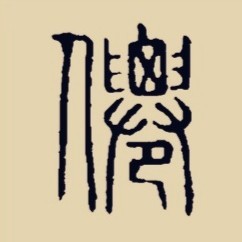 陶小凡
陶小凡-
1. can (could)
1) 表示能力,could主要指过去时间。例如:
① Two eyes can see more than one. 两只眼比一只眼看得清。
② Could the girl read before she went to school? 这女孩上学前能识字吗?
2) 表示可能(理论上或是逻辑判断上)。例如:~,>_K
① He can"t (couldn"t) have enough money for a new car. 他不可能有足够的钱买新车。
② You mustn"t smoke while you"re walking around in the wood. You could start a fire. 在林子里走时勿吸烟,那样可能会引起火灾。
3) 表示允许。例如:
① Can I have a look at your new pen? 我可以看一看你的新钢笔吗?
② He asked whether he could take the book out of the reading—room. 他问他可不可以把书带出阅览室。
4) 表惊异、怀疑、不相信等态度。主要用于否定句、疑问句或感叹句中。例如:
① Where can (could) they have gone to? 他们会去哪儿了呢?
② How can you be so careless? 你怎么这么粗心?
5) 比较委婉客气地提出问题或陈述看法。例如:
① Can (Could) you lend me a hand? 帮我一把好吗?.
② I"m afraid we couldn"t give you an answer today. 恐怕我们今天不能给你答复。
2.may (might)
1) 表允许,might可以指过去时间,也可指现在时间,语气更委婉。例如:
① You may take whatever you like.你喜欢什么就拿什么。
② May (Might) I ask for a photo of your baby? 我可以要一张你宝宝的照片吗?
在回答以may引起的问句时,多避免用这个词,而用其它方式,如Yes, please. / Certainly. / Please don"t. / You"d better not. / No, you mustn"t.等,以免显得太严峻或不客气。
2) 表可能(事实上)。可以指过去时间,也可以指现在时间,但语气更加不肯定。例如:
① He may be at home. 他可能在家。
② She may not know about it. 她可能不知道这件事。
must
1) 表示义务。意为“必须”(主观意志)。例如:
① We must do everything step by step. 我们一切都必须循序渐进地做。
② --Must we hand in our exercise books now?我们现在就要交练习本吗?
--No, you needn"t. / No, you don"t have to. 不必。
4) 表示揣测。意为“想必、准是、一定”等,只用于肯定句。例如:
① He must be ill. He looks so pale. 他准是病了。他的脸色苍白。
② She"s wearing a diamond necklace. She must have a lot of money. 她戴着钻石项链,一定很有钱。:
3.shall
1) 表征询意见,用于第一、第三人称疑问句。例如:
① Shall I get you some tea? 我给你点茶好吗?
② Shall the boy wait outside? 让那男孩在外面等吗?
2) 表说话人的意愿,有“命令、允诺、警告、决心”等意思,用于第二、第三人称陈述句。例如:
① You shall do as I say. 按我说的做。(命令)
② You shall have my answer tomorrow. 你明天可以得到我的答复。(允诺)
③ He shall be sorry for it one day, I tell you. 有一天他会后悔的,我告诉你。(警告)
④ Nothing shall stop us from carrying out the plan. 什么也不能阻止我们执行这项计划。(决心)
4.will
1) 表意愿,用于各种人称陈述句。例如:
① I will do anything for you. 我愿为你做任何事。
② None is so blind as those who won"t see. 不愿看的人眼最瞎。
③ If you will read the book, I"ll lend it to you. 如果你愿意读这本书,我会把它借给你。
2) 表请求,用于疑问句。例如:
① Will you close the window? 请你把窗户关上好吗?
② Won"t you drink some more coffee? 再来一点咖啡好吗?
3) 表示某种倾向或习惯性动作。例如:
① Fish will die out of water. 鱼离开水就不能活。
② The door won"t open. 这门打不开。
5. should
1) 表义务。意为“应该”(某件事宜于做),用于各种人称。例如:
① You should be polite to your teachers. 你对老师应该有礼貌。
② You shouldn"t waste any time. 你不应该浪费时间。
2) 表推测,意为“想必一定、照说应该、估计”等。例如:
① The film should be very good as it is starring first-class actors. 这部新电影是一流演员主演的,估计拍得很好。
② They should be home by now. 照说他们现在应当已经到家了。
3)(表示不确定)万一。例如:
① If I should see him, I"ll tell him. 万一我见到他,我就告诉他。
② If it should rain tomorrow, the sports meeting would be postponed. 万一明天下雨,比赛就延期举行。"
6. would
1) 表意愿。例如::
① They would not let him in because he was poorly dressed. 他们不让他进去因为他衣着破旧。
② I said I would do anything for you. 我说过我愿意为你做任何事。
2) 表委婉地提出请求、建议或看法。例如:
① Would you mind cleaning the window? 请把窗户擦一下好吗?
② They wouldn"t have anything against it. 他们不会有什么反对意见。
3) 表过去反复发生的动作或过去的一种倾向。例如::
Every time she was in trouble, she would go to him for help. 她每遇到麻烦都会向她求助。他告诉我盒子打不开了。
7.ought to
1) 表义务,意为“应该”(因责任、义务等该做),口气比should稍重。例如:
① You are his father. You ought to take care of him.你是他父亲,应当管他。
② You oughtn"t to smoke so much. 你不应该抽这么多烟。
2) 表推测,暗含很大的可能,语气较弱。例如:
① Han Mei ought to know his telephone number. 韩梅该知道他的电话号码。
② There"s a fine sunset; it ought to be a fine day tomorrow. 今天有晚霞,明天应该是个好天。
8. used to
表示过去的习惯动作或状态,现在不复发生或存在。疑问式和否定式有两种。例如:i
① There used to be a building at the street corner, but it has been pulled down. 街道拐角处过去有座楼房,现在拆了。
② I usedn"t (didn"t use) to smoke. 我过去不抽烟。j }F
③ Used you (Did you use) to go to school on foot? 你过去常步行去学校吗?
 慧慧
慧慧-
should,would,could,must,might,may,can的区别:
1、can (could)表示能力,could主要指过去时间。表惊异、怀疑、不相信等态度。主要用于否定句、疑问句或感叹句中。
2、may (might)表允许,might可以指过去时间,也可指现在时间,语气更委婉。在回答以may引起的问句时,多避免用这个词,而用其它方式,如Yes, please. / Certainly.表可能(事实上)。可以指过去时间,也可以指现在时间,但语气更加不肯定。
3、must表示义务。意为“必须”(主观意志)。表示揣测。意为“想必、准是、一定”等,只用于肯定句。
4、 shall表征询意见,用于第一、第三人称疑问句。表说话人的意愿,有“命令、允诺、警告、决心”等意思,用于第二、第三人称陈述句。
5、will表意愿,用于各种人称陈述句。表请求,用于疑问句。表示某种倾向或习惯性动作。
6、should表义务。意为“应该”(某件事宜于做),用于各种人称。表推测,意为“想必一定、照说应该、估计”等。
7、would表意愿,表委婉地提出请求、建议或看法。表过去反复发生的动作或过去的一种倾向。
拓展资料
should
1、I should exercise more
我应该多锻炼一些。
2、All visitors should register with the British Embassy
所有游客都必须到英国大使馆登记。
3、I should have gone this morning but I was feeling a bit ill
今天早晨我本应该走的,但是我觉得有点不舒服。
4、You should have no problem with reading this language
阅读这种语言你应该没问题。
5、Should I or shouldn"t I go to university?
我该不该去上大学呢?
would
1、No one believed he would actually kill himself
没有人相信他真的会自杀。
2、The statement added that although there were a number of differing views, these would be discussed by both sides
这项声明还称,虽然双方观点存在若干分歧,但将就这些分歧展开讨论。
3、Ordinarily it would be fun to be taken to fabulous restaurants
一般来说,跟别人去豪华餐馆吃饭会是件乐事。
4、They said they would give the police their full cooperation
他们说他们愿意与警方通力合作。
5、She asked me what I would like to do and mentioned a particular job
她问我想干什么,然后提到了一份工作。
could
1、For my return journey, I felt I could afford the extra and travel first class
至于回程,我觉得我能多花点钱坐头等舱。
2、Though he had a temper and could be nasty, it never lasted
虽然他爱发脾气,而且有时还很讨厌,但向来都只是一阵儿。
3、He could have made a fortune as a lawyer
他本可以当律师挣大钱的。
4、Doctors told him the disease could have been caused by years of working in smokey clubs
医生们告诉他这种疾病可能是由于多年在烟雾缭绕的俱乐部工作所致。
5、Their hope was that a new and better East Germany could be born
他们希望能够诞生一个崭新的、更加美好的东德。
 max笔记
max笔记-
您好:
1 情态动词的语法特征
1) 情态动词不能表示正在发生或已经发生的事情,只表示期待或估计某事的发生。
2) 情态动词 除ought 和have 外,后面只能接不带to 的不定式。
3) 情态动词没有人称,数的变化,即情态动词第三人称单数不加-s。
4) 情态动词没有非谓语形式,即没有不定式,分词,等形式。
2 比较can 和be able to
1)can could 表示能力;可能 (过去时用could),
只用于现在式和过去式(could)。be able to可以用于各种时态。
They will be able to tell you the news soon. 他很快就能告诉你消息了。
2)只用be able to
a. 位于助动词后。
b. 情态动词后。
c. 表示过去某时刻动作时。
d. 用于句首表示条件。
e. 表示成功地做了某事时,只能用was/were able to, 不能用could。
He was able to flee Europe before the war broke out.
= He managed to flee Europe before the war broke out.
注意:could不表示时态
1)提出委婉的请求,(注意在回答中不可用could)。
--- Could I have the television on?
--- Yes, you can. / No, you can"t.
2)在否定,疑问句中表示推测或怀疑。
He couldn"t be a bad man.
他不大可能是坏人。
3 比较may和might
1) 表示允许或请求;表示没有把握的推测;may 放在句首,表示祝愿。
May God bless you!
He might be at home.
注意: might 表示推测时,不表示时态。只是可能性比may 小。
2) 成语: may/might as well,后面接不带to 的不定式,意为"不妨"。
If that is the case, we may as well try.
典型例题
Peter ___come with us tonight, but he isn"t very sure yet.
A. must B. may C. can D. will
答案B. 表可能性只能用may. 此句意可从后半句推出。
4 比较have to和must
1) 两词都是"必须"的意思,have to 表示客观的需要, must 表示说话人主观上的看法,既主观上的必要。
My brother was very ill, so I had to call the doctor in the middle of the night. 我弟弟病得很厉害,我只得半夜里把医生请来。(客观上需要做这件事)
He said that they must work hard. 他说他们必须努力工作。(主观上要做这件事)
2) have to有人称、数、时态的变化,而must只有一种形式。但must 可用于间接引语中表示过去的必要或义务。
He had to look after his sister yesterday.
3) 在否定结构中: don"t have to 表示"不必"
mustn"t 表示"禁止",
You don"t have to tell him about it. 你不一定要把此事告诉他。
You mustn"t tell him about it. 你一定不要把这件事告诉他。
5 must表示推测
1) must用在肯定句中表示较有把握的推测,意为"一定"。
2) must表对现在的状态或现在正发生的事情的推测时, must 后面通常接系动词be 的原形或行为动词的进行式。
You have worked hard all day.You must be tired. 你辛苦干一整天,一定累了。(对现在情况的推测判断)
He must be working in his office. 他一定在办公室工作呢。
比较:
He must be staying there.
他现在肯定呆在那里。
He must stay there.
他必须呆在那。
3) must 表示对已发生的事情的推测时,must 要接完成式。
I didn"t hear the phone. I must have been asleep. 我刚才没有听到电话,我想必是睡着了。
4) must表示对过去某时正发生的事情的推测,must 后面要接不定式的完成进行式。
---Why didn"t you answer my phone call?
---Well, I must have been sleeping, so I didn"t hear it.
5) 否定推测用can"t。
If Tom didn"t leave here until five o"clock, he can"t be home yet. 如果汤姆五点才离开这儿,他此时一定还未到家。
6 表示推测的用法
can, could, may, might, must 皆可表示推测,其用法如下:
1)情态动词+动词原形。
表示对现在或将来的情况的推测,此时动词通常为系动词。
I don"t know where she is, she may be in Wuhan.
2)情态动词+动词现在进行时。
表示对现在或将来正在进行的情况进行推测。
At this moment, our teacher must be correcting our exam papers.
这时,我们老师想必在批改试卷。
3)情态动词+动词完成时。
表示对过去情况的推测。
We would have finished this work by the end of next December.
明年十二月底前我们很可能已完成这项工作了。
The road is wet. It must have rained last night.
地是湿的,昨天晚上一定下雨了。
4)情态动词+动词的现在完成进行时。
表示对过去正在发生事情的推测。
Your mother must have been looking for you.
你妈妈一定一直在找你。
5)推测的否定形式,疑问形式用can"t, couldn"t表示。
Mike can"t have found his car, for he came to work by bus this morning.
迈克一定还没有找回他的车,因为早上他是坐公共汽车来上班的。
注意:could, might表示推测时不表示时态,其推测的程度不如can, may。
7 情态动词+ have +过去分词
1) may(might) have + done sth, can (could) have + done sth 表示过去,推测过去时间里可能发生的事情。
Philip may (might) have been hurt seriously in the car accident.
Philip can (could) have been hurt seriously in the car accident.
2) must have +done sth,对过去时间里可能发生的事情的推测,语气较强,具有"肯定","谅必"的意思。
---Linda has gone to work, but her bicycle is still here.
---She must have gone by bus.
3) ought to have done sth, should have done sth
本应该做某事,而事实上并没有做。否定句表示"不该做某事而做了"。
You ought to (should) have been more careful in this experiment.
He ought not to have thrown the old clothes away.(事实上已扔了。)
ought to 在语气上比should 要强。
4) needn"t have done sth 本没必要做某事
I dressed very warmly for the trip, but I needn"t have done so. The weather was hot.
5) would like to have done sth 本打算做某事
I would like to have read the article, but I was very busy then.
8 should 和ought to
should 和ought to 都为"应该"的意思,可用于各种人称。
---Ought he to go?
---Yes. I think he ought to.
表示要求,命令时,语气由 should(应该)、had better最好)、must(必须)渐强。
9 had better表示"最好"
had better 相当于一个助动词,它只有一种形式,它后面要跟动词原形。
had better do sth
had better not do sth
It is pretty cold. You"d better put on my coat.
She"d better not play with the dog.
had better have done sth表示与事实相反的结果,意为"本来最好"。
You had better have come earlier.
10 would rather表示"宁愿"
would rather do
would rather not do
would rather… than… 宁愿……而不愿。
还有would sooner, had rather, had sooner都表示"宁愿"、"宁可"的意思。
If I have a choice, I had sooner not continue my studies at this school.
I would rather stay here than go home. = I would stay here rather than go home.
典型例题
----Shall we go skating or stay at home?
----Which ___ do?
A. do you rather B. would you rather C. will you rather D. should you rather
答案B。本题考查情态动词rather的用法,would rather +do sth 意为"宁愿",本题为疑问句,would 提前,所以选B。
11 will和would
注意:
1)would like; Would like to do = want to 想要,为固定搭配。
Would you like to go with me?
2)Will you…? Would you like…? 表示肯定含义的请求劝说时,疑问句中一般用some, 而不是any。
Would you like some cake?
3)否定结构中用will,一般不用would, won"t you是一种委婉语气。
Won"t you sit down?
12 情态动词的回答方式
问句 肯定回答 否定回答
Need you…? Yes, I must. No,I needn"t
Must you…? /don"t have to.
典型例题
1)---Could I borrow your dictionary?
---Yes, of course, you____.
A. might B. will C. can D. should
答案C.could表示委婉的语气,并不为时态。答语中of course,表示肯定的语气,允许某人做某事时,用can和 may来表达,不能用could或might。复习: will 与you连用,用来提出要求或下命令。should与you 连用,用来提出劝告。
2)---Shall I tell John about it?
---No, you ___. I"ve told him already.
A. needn"t B. wouldn"t C. mustn"t D. shouldn"t
答案A。needn"t 不必,不用。 wouldn"t 将不, 不会的。 mustn"t 禁止、不能。 shouldn"t 不应该。本题为不需要,不必的意思,应用needn"t。
3)---Don"t forget to come to my birthday party tomorrow.
---______.
A. I don"t B. I won"t C. I can"t D. I haven"t
答案B. will既可当作情态动词,表请求、建议、也可作为实义动词表"意愿、意志、决心",本题表示决心,选B。
13 带to 的情态动词
带to 的情态动词有四个:ought to, have to, used to, be to, 如加上have got to ,(=must), be able to,为六个。它们的疑问,否定形式应予以注意:
Do they have to pay their bill before the end of the month?
She didn"t use to play tennis before she was fourteen.
You ought not to have told her all about it.
Ought he to see a heart specialist at once.?
ought to 本身作为情态动词使用。其他的词作为实义动词使用,变疑问,否定时,须有do 等助动词协助。
典型例题
Tom ought not to ___ me your secret, but he meant no harm.
A.have told B.tell C.be telling D. having told
答案A。由于后句为过去时,告诉秘密的动作又发生在其前因,此地应用过去完成时,但它在情态动词 ought to 后,所以用have。
14 比较need和dare
这两词既可做实义动词用,又可做情态动词用。作为情态动词,两者都只能用于疑问句,否定句和条件句。 need 作实义动词时后面的不定式必须带to,而dare作实义动词用时, 后面的to 时常可以被省略。
1) 实义动词: need (需要, 要求)
need + n. / to do sth
2) 情态动词: need,只用原形need后加do,否定形式为need not。
Need you go yet?
Yes, I must. / No, I needn"t.
3) need 的被动含义:need, want, require, worth(形容词)后面接doing也可以表示被动:
need doing = need to be done
-----------------------------------
如有疑问欢迎追问!
满意请点击右上方【选为满意回答】按钮
 北境漫步
北境漫步-
这类词都属于情态动词 下面普及下其用法
情态动词是一种本身有一定的词义,表示说话人的情绪,态度或语气的动词,但不能单独作谓语, 只能和其他动词原形构成谓语.
情态动词数量不多,但用途广泛,主要有下列:
can (could), may (might), must, need, ought to, dare (dared), shall (should), will (would) .
情态动词的位置:
情态动词在句中放在谓语动词之前, 谓语动词前若有助动词,则在助动词之前,疑问句中, 情态动词则在主语之前.
情态动词的特点:
情态动词无人称和数的变化, 情态动词后面跟的动词需用原形,否定式构成是在情态动词后面加 "not". 个别情态动词有现在式和过去式两种形式, 过去式用来表达更加客气, 委婉的语气, 时态性不强, 可用于过去,现在或将来.
情态动词的用法:
can (could) 表示说话人能,可以,同意,准许,以及
客观条件许可,could 为 can 的过去式.
Must 必须,应该,一定,准是, 表示说话人认为有必要做某事, 命令, 要求别人做某事以及对事物的推测.
must 用来指一般现在时和一般将来时, 过去式可用 have to 的过去式代替.
must + have + 过去分词,表示现在对过去事物的推测.
must 和 have to 的区别: must 表示说话人的主观思想, have to 表示客观需要.
need 是一个情态动词, 他的用法完全和其他情态动词一样, 但 need 还可当作实义动词使用, 这时 need 就象其他动词一样,有第三人称,单复数, 后面加带 to 的动词等特性.
needn"t + have + 过去分词 表示过去做了没必要做的事情.
dare 除用作情态动词外,更多的是当实义动词使用, 用法同实义动词一样,要考虑人称,单复数,时态等.
ought 应当,应该 后面跟带有 to 的动词不定式.
ought + to have done 句型.指过去动作,表示一件事情该做而未做.
ought not to have done 句型.表示一件不该做的事情却做了.
will (would)决心,愿望. would 为 will 的过去式,
will, would用于疑问句表示说话人向对方提出请求或询问,用 would 比 will 更婉转,客气.
Shall, should表示命令,警告,允诺,征求,劝告,建议惊奇.
have to,不得不,必须,表示客观条件只能如此, 而must 则表示主观思想必须
 南yi
南yi-
区别太多了,我就附上一些说明:
1. can (could)
1) 表示能力,could主要指过去时间。例如:
Two eyes can see more than one. 两只眼比一只眼看得清。
2) 表示可能(理论上或是逻辑判断上)。例如:
He can"t (couldn"t) have enough money for a new car. 他不可能有足够的钱买新车。
3) 表示允许。例如:
Can I have a look at your new pen? 我可以看一看你的新钢笔吗?
4) 表惊异、怀疑、不相信等态度。主要用于否定句、疑问句或感叹句中。例如:
Where can (could) they have gone to? 他们会去哪儿了呢?
5) 比较委婉客气地提出问题或陈述看法。例如:
Can (Could) you lend me a hand? 帮我一把好吗?.
2.may (might)
1) 表允许,might可以指过去时间,也可指现在时间,语气更委婉。例如:
You may take whatever you like.你喜欢什么就拿什么。
在回答以may引起的问句时,多避免用这个词,而用其它方式,如Yes, please. / Certainly. / Please don"t. / You"d better not. / No, you mustn"t.等,以免显得太严峻或不客气。
2) 表可能(事实上)。可以指过去时间,也可以指现在时间,但语气更加不肯定。例如:
He may be at home. 他可能在家。
3、 must
1) 表示义务。意为“必须”(主观意志)。例如:
We must do everything step by step. 我们一切都必须循序渐进地做。
表示揣测。意为“想必、准是、一定”等,只用于肯定句。例如:
He must be ill. He looks so pale. 他准是病了。他的脸色苍白。。
 meira
meira-
should,would,could,must,might,may,can区别和用法
1. can (could)
1)表示能力,could主要指过去时间。
Two eyes can see more than one. 两只眼比一只眼看得清。
Could the girl read before she went to school? 这女孩上学前能识字吗?
2)表示可能(理论上或是逻辑判断上)。
The temperature can fall to –60℃, that is 60℃ below freezing.
气温可降至—60℃,也就是零下60℃。
He can´t (couldn´t) have enough money for a new car. 他不可能有足够的钱买新车。
You mustn´t smoke while you´re walking around in the wood. You could start a fire.
在林子里走时勿吸烟,那样可能会引起火灾。
3)表示允许。
Can I have a look at your new pen? 我可以看一看你的新钢笔吗?
He asked whether he could take the book out of the reading—room.
他问他可不可以把书带出阅览室。
4)表惊异、怀疑、不相信等态度。主要用于否定句、疑问句或感叹句中。
Where can (could) they have gone to? 他们会去哪儿了呢?
He can´t (couldn´t) be over sixty. 他不可能超过六十岁。
How can you be so careless? 你怎么这么粗心?
5)比较委婉客气地提出问题或陈述看法。
Can (Could) you lend me a hand? 帮我一把好吗?
I´m afraid we couldn´t give you an answer today. 恐怕我们今天不能给你答复。
2. may (might)
1)表允许,might可以指过去时间,也可指现在时间,语气更委婉。
You may take whatever you like. 你喜欢什么就拿什么。
He told me that I might smoke in the room. 他告诉我可以在房间里抽烟。
May (Might) I ask for a photo of your baby? 我可以要一张你宝宝的照片吗?
在回答以may引起的问句时,多避免用这个词,而用其它方式,如Yes, please. / Certainly.
/ Please don´t ./ You´d better not. / No, you mustn´t.等,以免显得太严峻或不客气。
2)表可能(事实上)。可以指过去时间,也可以指现在时间,但语气更加不肯定。
He may be at home. 他可能在家。
She may not know about it. 她可能不知道这件事。
He was afraid they might not agree with him. 他担心他们可能不同意他的意见。
They might be having a meeting, but I´m not sure. 他们有可能在开会,不过我不肯定。
3. must
1)表示义务。意为“必须”(主观意志)。
We must do everything step by step. 我们一切都必须循序渐进地做。
You mustn´t talk to her like that. 你不可能那样对她说话。
--Must we hand in our exercise—books now? 我们现在就要交练习本吗?
--No, you needn´t. / No, you don´t have to. 不必。(这种情况下,一般不用mustn´t)
2)表示揣测。意为“想必、准是、一定”等,只用于肯定句。
He must be ill. He looks so pale. 他准是病了。他的脸色苍白。
She´s wearing a diamond necklace. She must have a lot of money. 她戴着钻石项链,一定很有钱。
4. shall
1)表征询意见,用于第一、第三人称疑问句。
Shall I get you some tea? 我给你点茶好吗?
Shall the boy wait outside? 让那男孩在外面等吗?
What shall we do this evening? 我们今晚做什么?
2)表说话人的意愿,有“命令、允诺、警告、决心”等意思,用于第二、第三人称陈述句。
You shall do as I say. 按我说的做。(命令)
You shall have my answer tomorrow. 你明天可以得到我的答复。(允诺)
He shall be sorry for it one day, I tell you. 有一天他会后悔的,我告诉你。(警告)
Nothing shall stop us from carrying out the plan. 什么也不能阻止我们执行这项计划。(决心)
5. will
1)表意愿,用于各种人称陈述句。
I will do anything for you. 我愿为你做任何事。
None is so blind as those who won´t see. 不愿看的人眼最瞎。
If you will read the book, I´ll lend it to you. 如果你愿意读这本书,我会把它借给你。
2)表请求,用于疑问句。
Will you close the window? It´s a bit cold. 请你把窗户关上好吗?有点冷。
Won´t you drink some more coffee? 再来一点咖啡好吗?
3)表示某种倾向或习惯性动作。
Fish will die out of water. 鱼离开水就不能活。
The door won´t open. 这门打不开。
The boy will sit there hour after hour looking at the traffic go by.
那男孩常常坐在那里好几个钟点,看着车辆行人通过。
6. should
1)表义务。意为“应该”(某件事宜于做),用于各种人称。
You should be polite to your teachers. 你对老师应该有礼貌。
You shouldn´t waste any time. 你不应该浪费时间。
2)表推测,意为“想必一定、照说应该、估计”等。
The film should be very good as it is starring first—class actors.
这部新电影是一流演员主演的,估计拍得很好。
They should be home by now. 照说他们现在应当已经到家了。
7.would
1)表意愿。
They would not let him in because he was poorly dressed. 他们不让他进去因为他衣着破旧。
I said I would do anything for you. 我说过我愿意为你做任何事。
2)表委婉地提出请求、建议或看法。
Would you like another glass of beer? 再来杯啤酒好吗?
Would you mind cleaning the window? 请把窗户擦一下好吗?
They wouldn´t have anything against it. 他们不会有什么反对意见。
3)表过去反复发生的动作或过去的一种倾向。
Every time she was in trouble, she would go to him for help.
她每遇到麻烦都会向她求助。他告诉我盒子打不开了。
 大鱼炖火锅
大鱼炖火锅-
should应该
would将要,表推断,或者will的过去时
could能够,本能够,或者can的过去时
must 必须 一定
might 可能,表推断,或者may的过去时
may 可能,表推断
can 能够,可以
